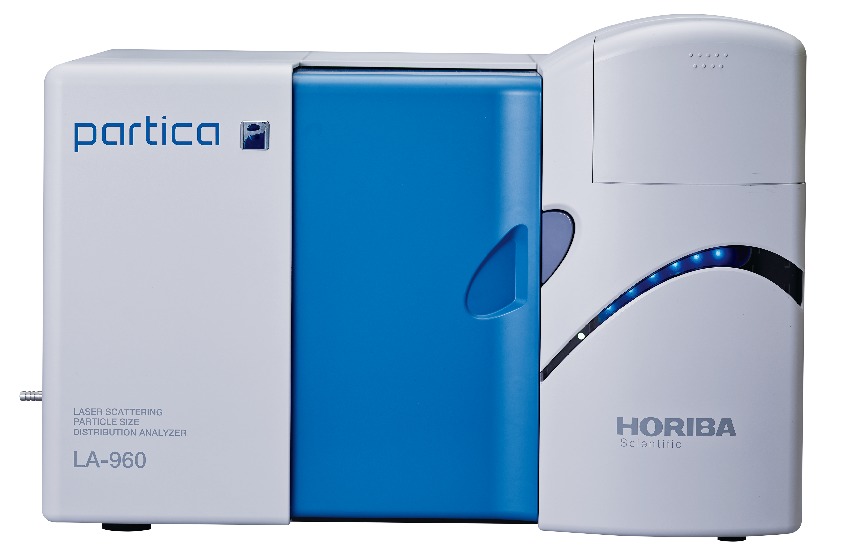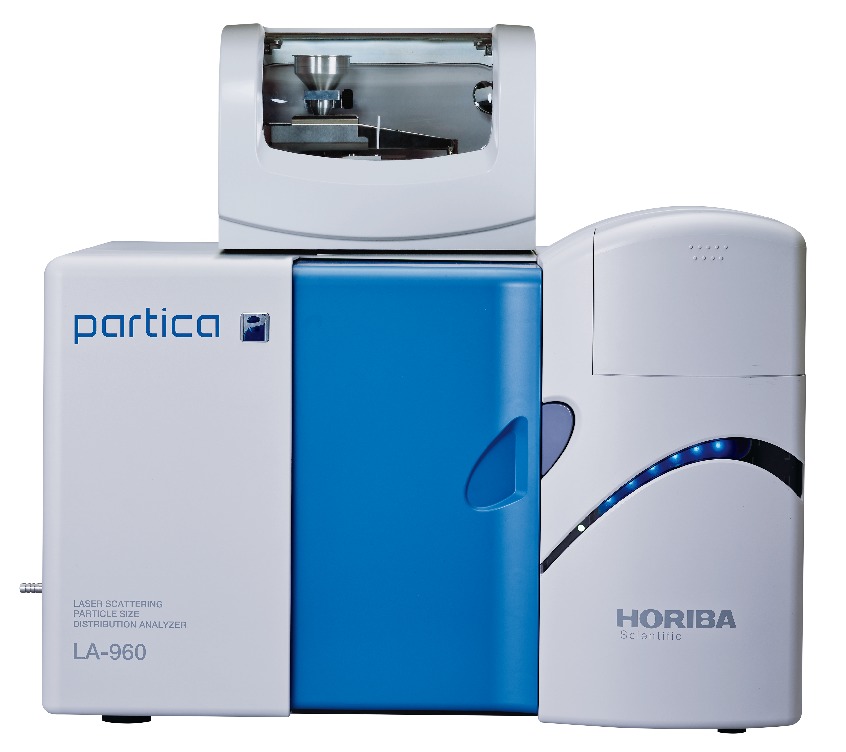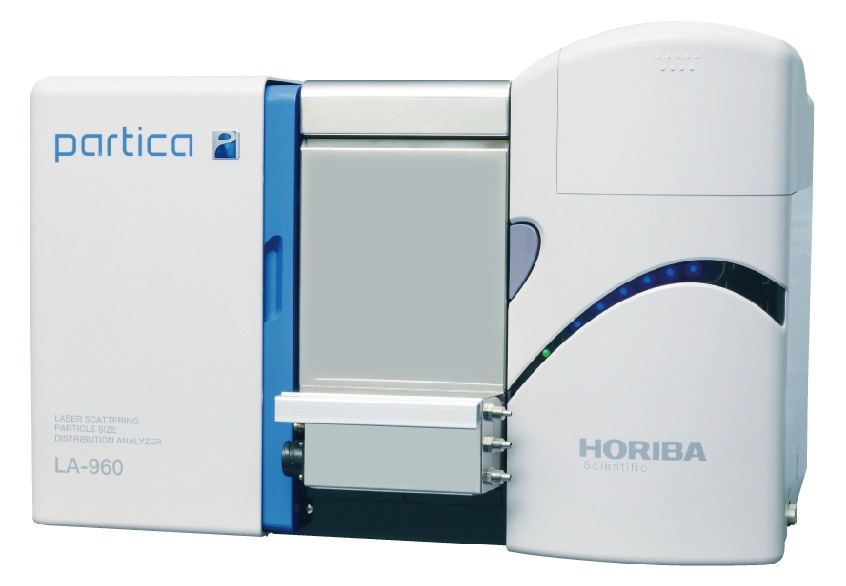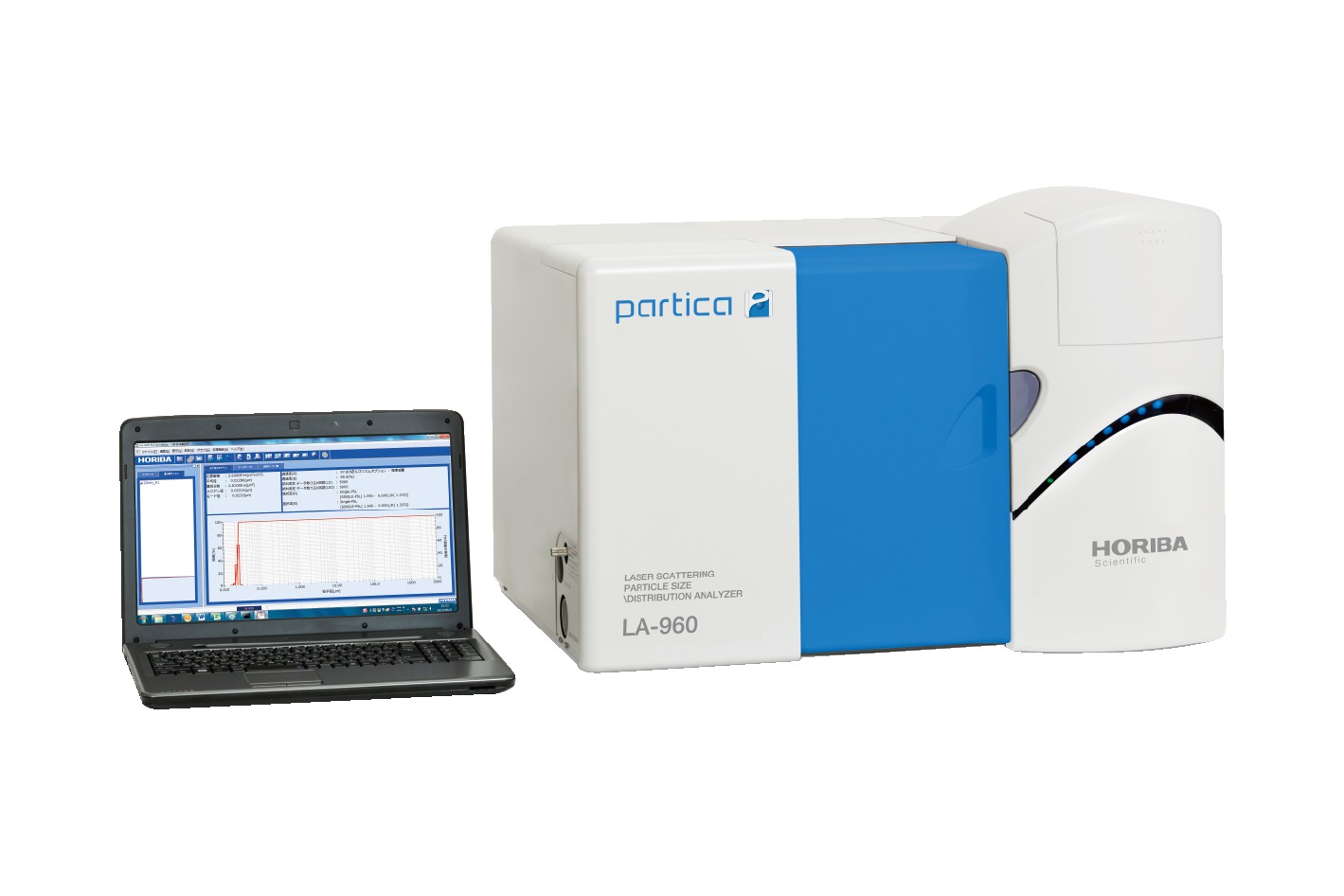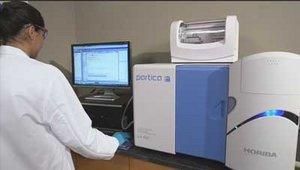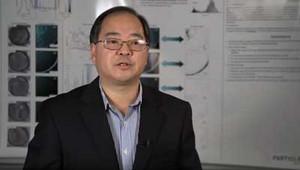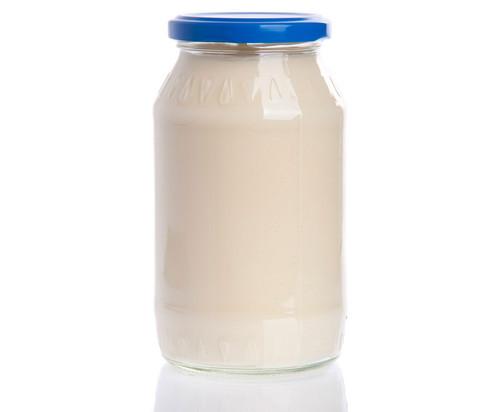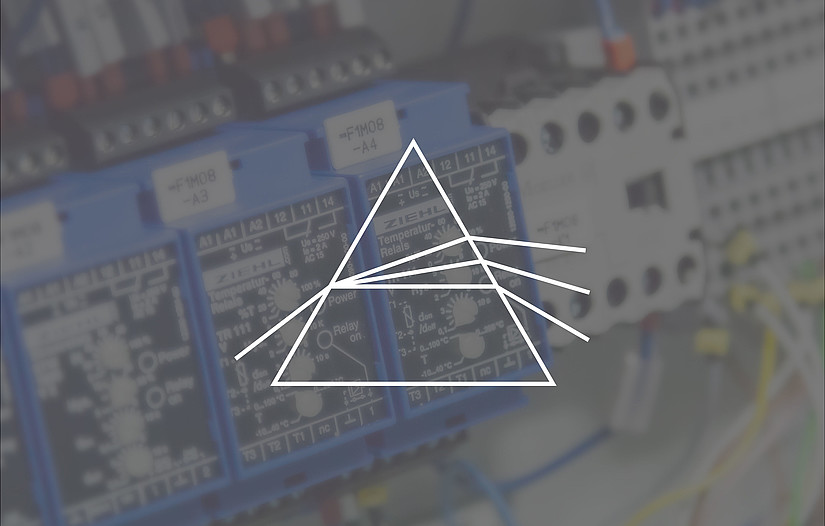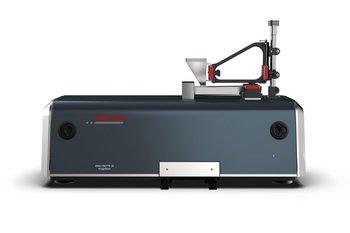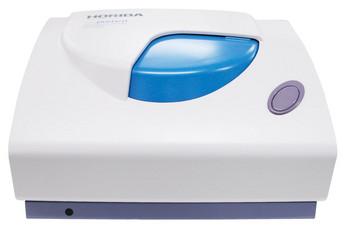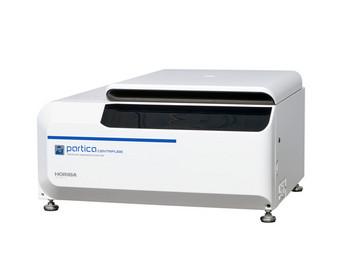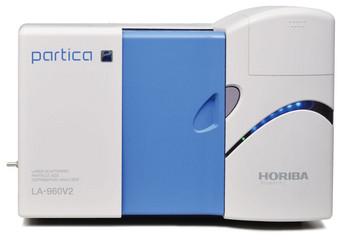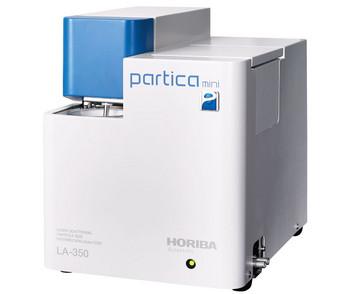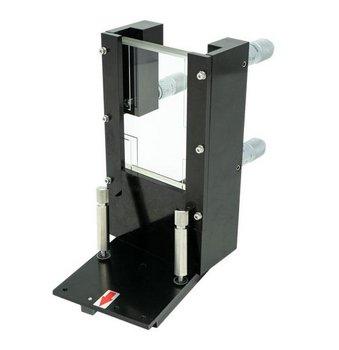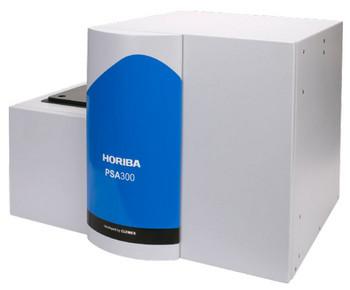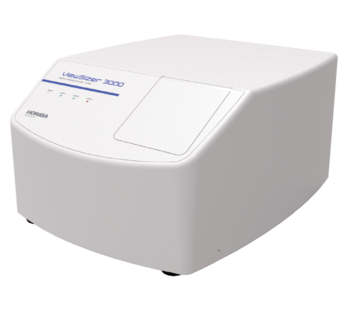
| Measurement Method | Mie Scattering Theory |
|---|---|
| Measurement Range | 0.01 μm to 5000 μm |
| Measurement Time | 1 minute from dispersion liquid filling to measurement and rinse. |
| Sampling System | Required Sample Amount:Sample 10 mg to 5 g (Depends on sample material) Dispersion Medium:Approx. 180 mL to 250 mL (Using Flow Cell) Viscosity:Less than 10 mPa・s |
| Optical System | Light Source:650 nm Laser Diode approx. 5.0 mW 405 nm Light Emitting Diode (LED) approx. 3.0 mW Detectors:Silicon Photo Diode |
| Circulation System | Ultrasonic Probe:Frequency 20 kHz 7-Level selections Circulation Pump:15-Level selections Agitator:15-Level selections Flow/Fraction Cell:Tempax Glass |
| Power Supply | 120 V AC ±10% or 230 V AC ±10%, 50/60 Hz ±1% |
| Power Consumption | 300 VA |
| Operating Temperature | 15 to 35℃ (59 to 95℉) |
| Operating Humidity | Relative Humidity 85% or less (no condensation) |
| External Dimensions | 705 x 565 x 500 mm (28 x 23 x 20 in) (W x D x H:not including dimensions of projections) |
| Mass Approx | 56 kg (123 lb) |
Dry Feeder Accessory
| Dispersion Method | Injector-driven forced dispersion in air, using compressed air |
|---|---|
| Sample Supply Method | Vibrating feeder |
| Sample Ejection Method | Vacuum-driven forced ejection |
| Sample Concentration Adjustment Method | Adjusted by feeder vibration power |
| Control Method | Serial communication with LA-960 measurement unit |
| Controlled Items | Feeder vibration power alteration (automatic or user-set), vacuum ON/OFF, compressed air valve ON/OFF, pressure is adjustable |
| Measurement Time | Normally about 2 seconds from start of measurement |
| Operating Temperature / Humidity | 15 to 35℃, 85% RH max. (no condensation) (59 to 95℉) |
| Outer Dimensions | 332 mm x 321 mm x 244 mm (13 x 13 x 10 in) (W x D x H:not including dimensions of projections and LA-960 measurement unit) |
| Power Supply | AC 100/120/230V, 50/60 Hz, 1500 VA (Including vacuum; not including LA-960 measurement unit) |
| Compressed Air Pressure | 0.5 MPa to 0.8 MPa |
| Compressed Air Supply Port | Quick connector for resin tube with 6 mm outer diameter (Compressed air supply equipment must be provided separately) |
Schematics
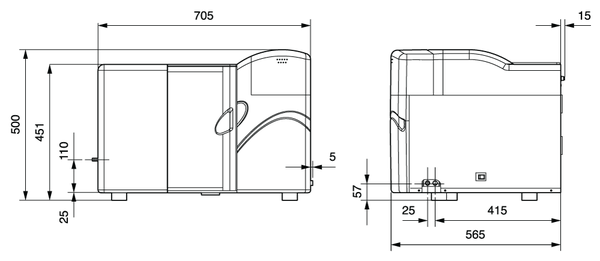
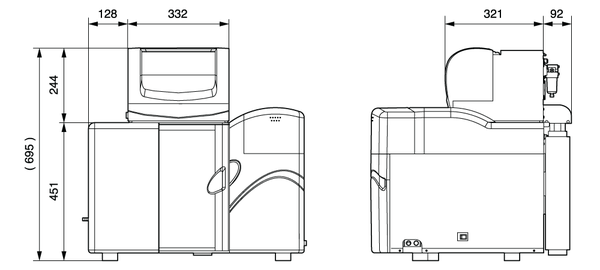
Line Up and Accessories
| Components | LA-960N | LA-960A | LA-960S | LA-960W | LA-960L | |
|---|---|---|---|---|---|---|
| Optics | Standard optical system | • | • | • | • | • |
Aqua type Ethanol | Standard circulation system | - | • | - | - | - |
| Pressurized fill adapter | - | - | - | • | - | |
| Liter flow | - | - | - | - | • | |
| Peristaltic pump system | - | - | - | • | - | |
| Solvent type (0.01 - 3000μm) | Standard pump system | - | - | • | - | - |
| Accessories | Fraction cell holder | • | • | • | • | • |
| Mini flow with ultrasonic unit (0.01- 1000μm) | • | • | • | • | • | |
| Paste cell holder | • | • | • | • | • | |
| Dry unit (0.1 - 5000μm) | • | • | • | • | • | |
| Auto sampler | - | • | • | • | • | |
| Slurry sampler | - | • | • | • | • | |
 This product has been discontinued and is no longer available. You can still access this page for informational service purposes.
This product has been discontinued and is no longer available. You can still access this page for informational service purposes.
